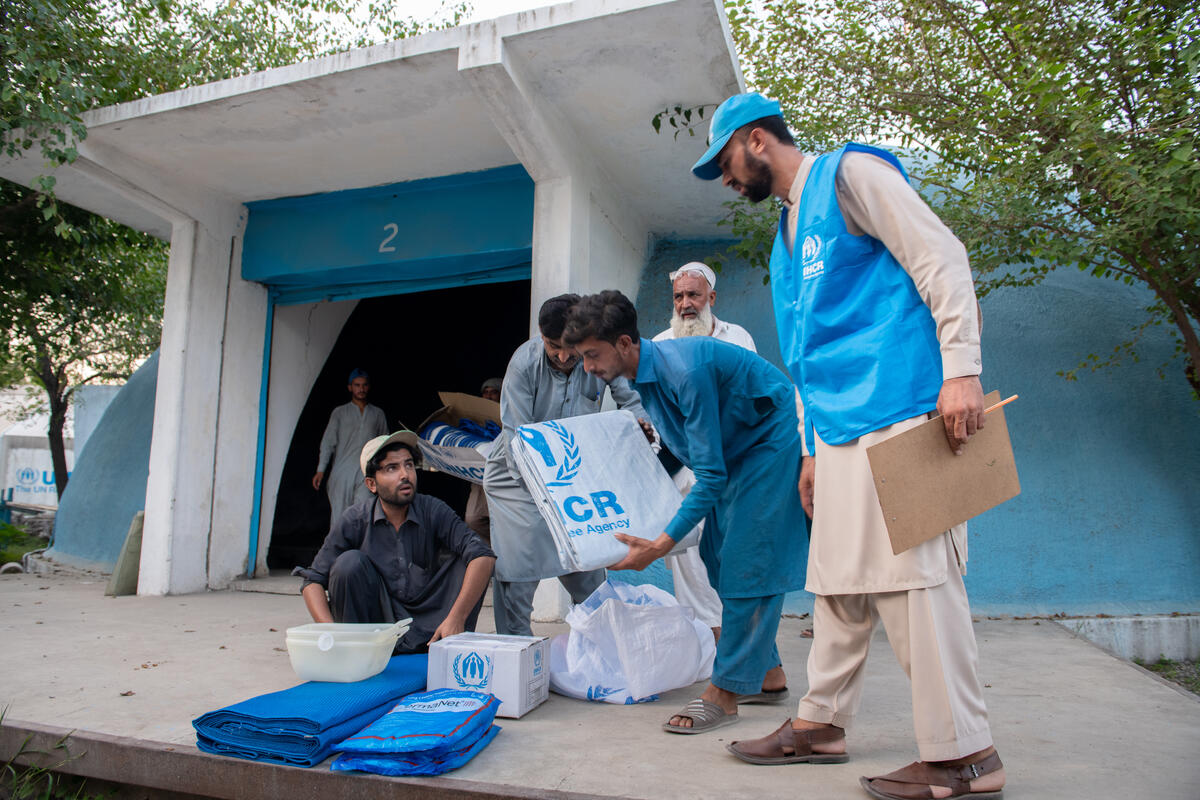UNHCR concerned about new restrictions on humanitarian work in Somalia
UNHCR concerned about new restrictions on humanitarian work in Somalia

GENEVA, November 29 (UNHCR) - The UN refugee agency expressed concern on Tuesday at the decision earlier this week by Somalia's Al Shabaab militia to revoke permission for UNHCR and other UN aid organizations to work in areas controlled by the group.
"This comes at the time of a dire humanitarian crisis in southern and central parts of Somalia," UNHCR spokesman Andrej Mahecic told journalists in Geneva. "We are assessing the impact of this latest development on our humanitarian operations in these parts of Somalia," he added.
The spokesman said military operations and heavy rains were limiting the movements of the displaced population in Somalia's Gedo region bordering Kenya. There have been no cross-border movements between the border towns of Dobley in Somalia and Liboi in Kenya.
However, Mahecic said, there were reports of more than 500 people, including children, travelling on foot from Qooqaani, Tabta (both in Gedo region) and Afmadow (Lower Juba) towards Dobley. "They cite a lack of food in their towns, cut off by the recent rains and military activity. Some people who have already arrived in Dobley told our staff that they were forced to leave their homes due to lack of food," he said.
"They indicated that they are willing to return as soon as the situation improves and are not planning to cross the border in order to reach Dadaab [refugee complex in north-east Kenya]. A number of agencies are operational in Dobley, undertaking distributions of food and other assistance," he added.
Insecurity, meanwhile, continues to hamper UNHCR's operations in Dadaab, which is home to some 460,000 refugees, more than 150,000 of whom arrived this year after fleeing drought and conflict in Somalia. It has been several weeks since the authorities stopped registering new arrivals. Aid agencies cannot assess the number and condition of new arrivals as their movements are still limited in the camps.
More than 360 refugees have been affected by cholera and acute watery diarrhoea. Most are treated as outpatient cases and there is a need for more supplies of oral rehydration salts and other treatments. At Dadaab's Kambioos site, the mortality rate has decreased and it is expected that the situation will further stabilize following food distributions over the weekend.
Despite security restrictions, the authorities managed to complete a mass oral polio vaccination campaign for all refugee children aged under five years. And efforts are continuing to enhance security measures in Dadaab, including the deployment of additional policemen.
In eastern Ethiopia's Dollo Ado camps, UNHCR staff are noting high rates of severe malnutrition among refugee children aged under five years turning up at a transit centre. In response, UNHCR and its partners are expanding a wet feed programme to all children up to the age of 10, and adding milk powder to their porridge to boost nutrient levels.
A fifth camp in that area, Bur Amino, is ready to receive a first batch of more than 7,000 refugees from the transit centre as of tomorrow. The transfers from the Dollo Ado transit centre will start initially with 500 people and will increase gradually until all the refugees are moved to the new site.
But access to these areas is increasingly difficult due to heavy rains. The roads are intermittently impassable and the local airstrip is often flooded preventing aircraft from landing. "This is seriously affecting our supplies and operations as we run low on fuel, electricity and safe drinking water," Mahecic said.








